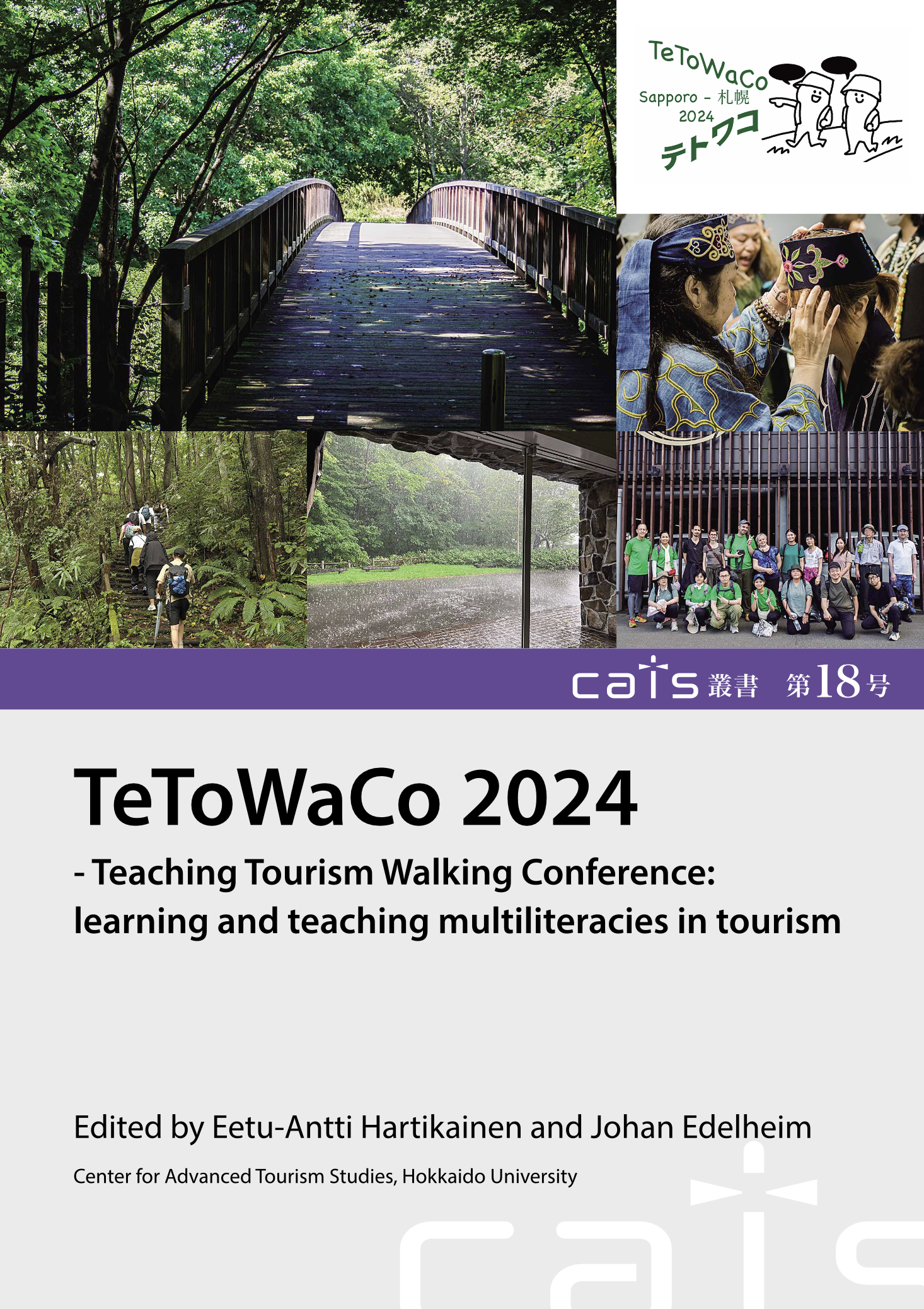Conference Proceedings

The proceedings of the conference are now available as “CATS Library Vol. 18” and it can been found on Hokkaido University's HUSCAP database from here.
Overview of Contributions
The submissions in this edited collection reflect the conference’s commitment to academic rigor and innovative approaches to tourism education. Contributions were, double open peer-reviewed categorised into four formats: keynote performances and talks, full papers, extended abstracts, and standard abstracts. Whereas we refer to all contributions here as ‘papers’ or ‘abstracts’, it is worth mentioning that we specifically allowed for a diversity of modes in submissions. Thus, amongst our contributions we have videos, manga-style cartoons, infographics, and'regular’ textual contributions, with or without visual elements, not to forget the songs, dances, and stories of our first keynote performance, each bringing unique perspectives to the multiliteracies theme.
- Keynote Performances: The keynote sessions added depth to the conference by exploring themes of cultural connection, environmental awareness, and community engagement. The texts in this volume capture the essence of these keynotes, presenting written versions of the talks and performances that inspired participants throughout the event. These contributions reflect on ancestral ties to land, the collaborative efforts behind the conference’s walking route, and the importance of mindful engagement with the landscapes we move through, offering lasting insights that extend beyond the walking experience itself.
- Full Papers: The full papers offer in-depth explorations of transformative approaches in tourism and community education. John MELVIN’s paper examines how family-centred experiences at visitor attractions can contribute to socio-cultural sustainability by fostering local engagement and empowerment. Daijiro YAMAGISHI’s paper rethinks community-based learning in Japan, focusing on university-community collaborations that enable tourism education to meaningfully address local development needs through participatory and culturally relevant methods.
- Extended Abstracts: The extended abstracts offer concise but insightful discussions of emerging concepts in tourism, from educational strategies that promote indigenous values to approaches that connect tourism education with local social enterprises. Topics range from ecotourism initiatives that elevate community participation in Ghana to discussions on the value of multiliteracies in tourism education. Other contributions consider innovative methods, such as integrating English and practical training in Japanese internships, using arts to revitalise rural communities, and employing technology to support cross-cultural and language learning in tourism. Collectively, they highlight creative and community-focused approaches that enhance tourism education.
- Standard Abstracts: The abstracts in this collection capture innovative and concise explorations in tourism education. They include a multimodal approach that combines infographics with academic writing, a curriculum initiative in Vietnam supporting ethnic minority tourism professionals through multiliteracies pedagogy, and a critical examination of higher education’s role in shaping career values within China’s tourism and hospitality industry. These abstracts offer fresh insights into how tourism education can be reimagined to address local and global challenges.
Final Reflections
As a culmination of our journey in Sapporo, this collection highlights the transformative impact of values-based, immersive education in tourism. It underscores the need for tourism education to embrace multimodality and multiliteracies, equipping students and practitioners to address contemporary challenges such as sustainability and social justice.We hope that this collection not only captures the collaborative spirit of our conference but also serves as a resource for innovative, socially responsible approaches in tourism education. May the insights within these pages inspire future journeys toward a more inclusive, interconnected world.